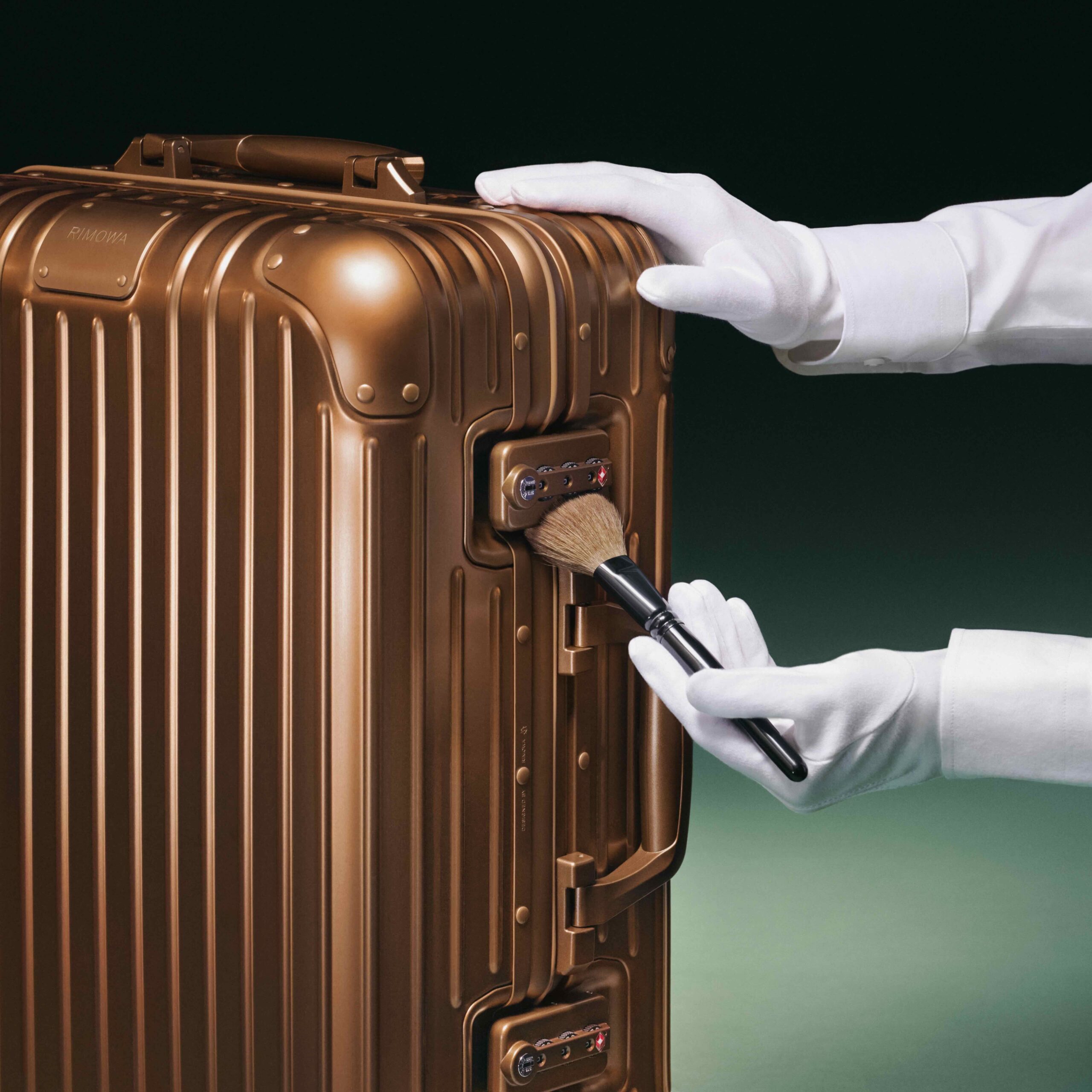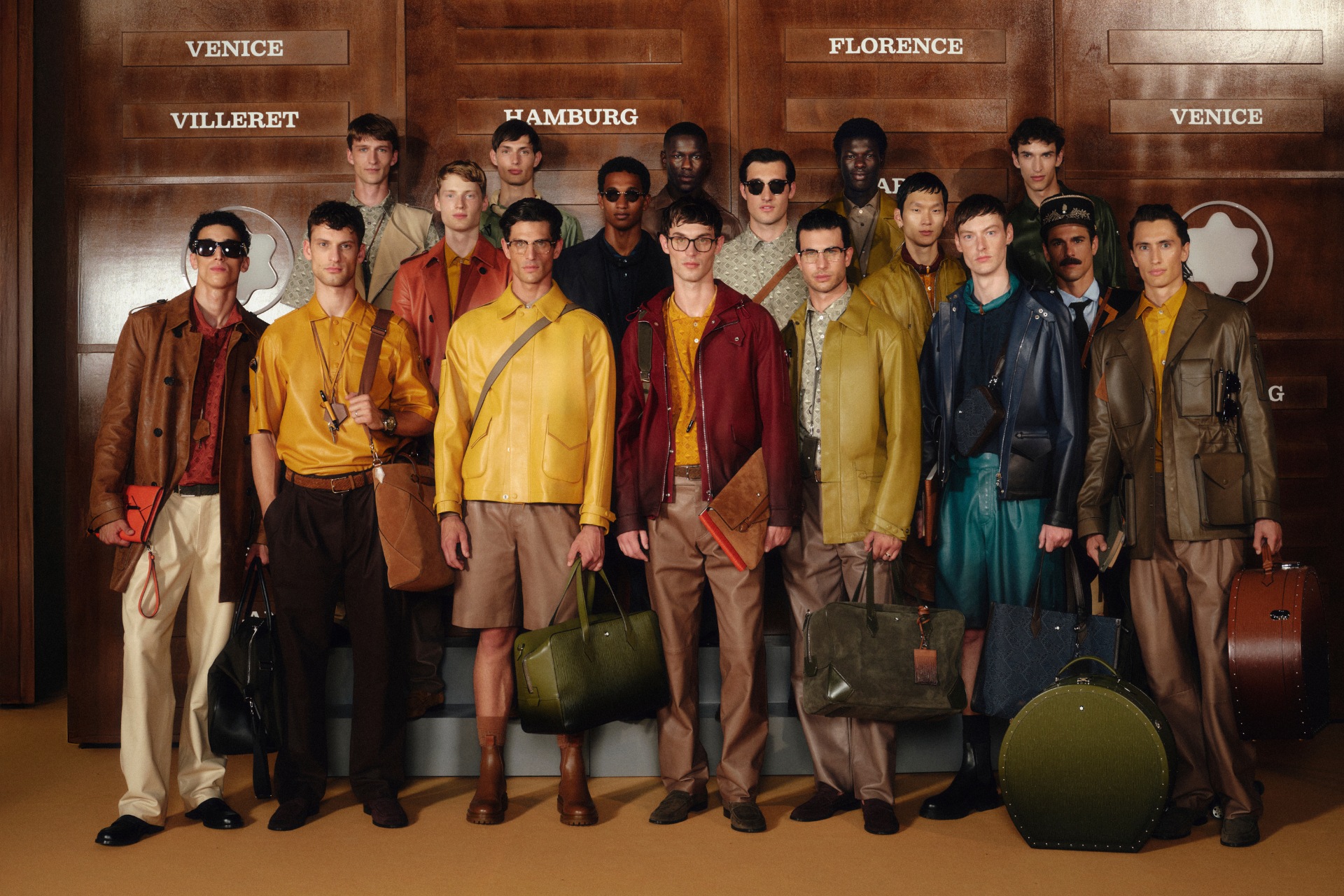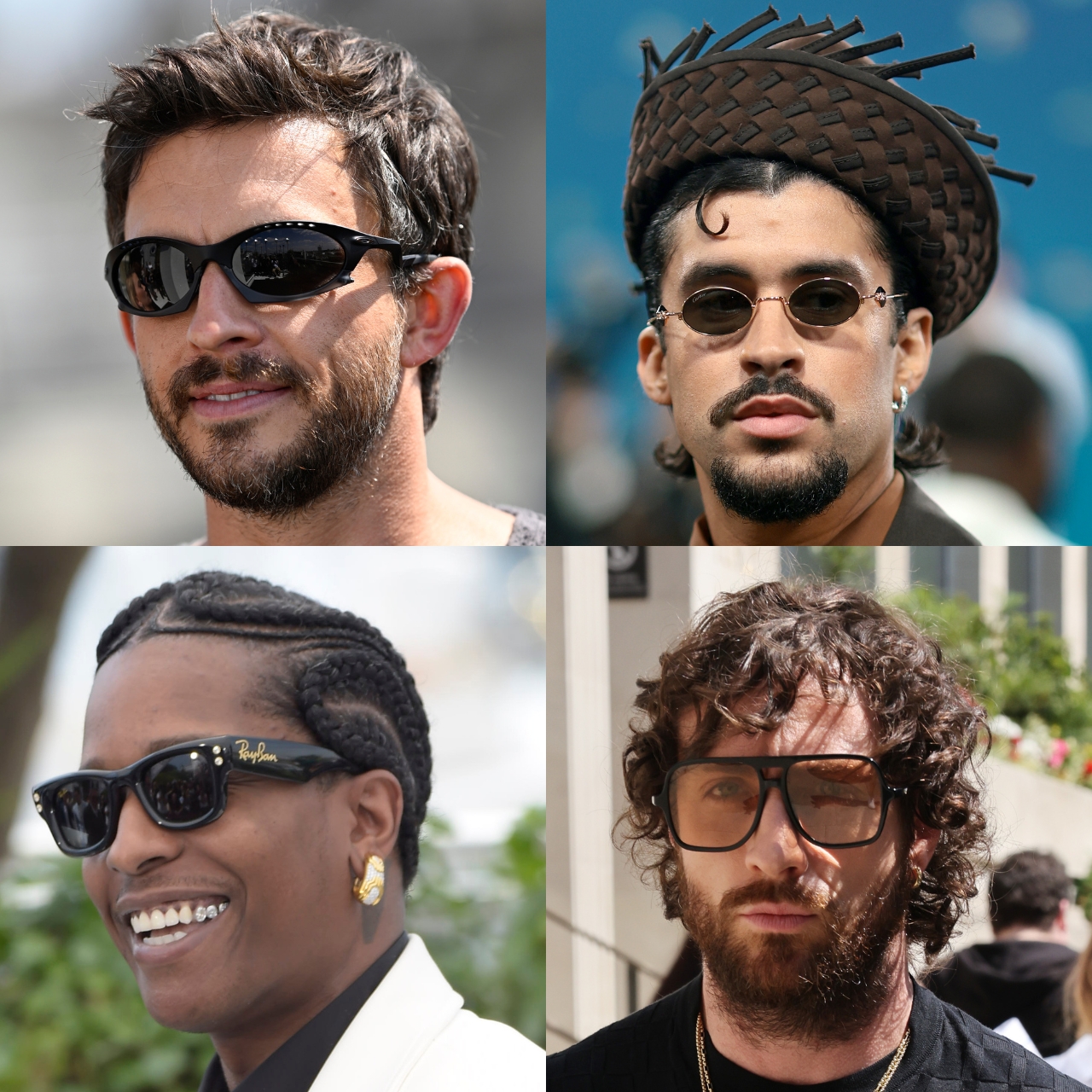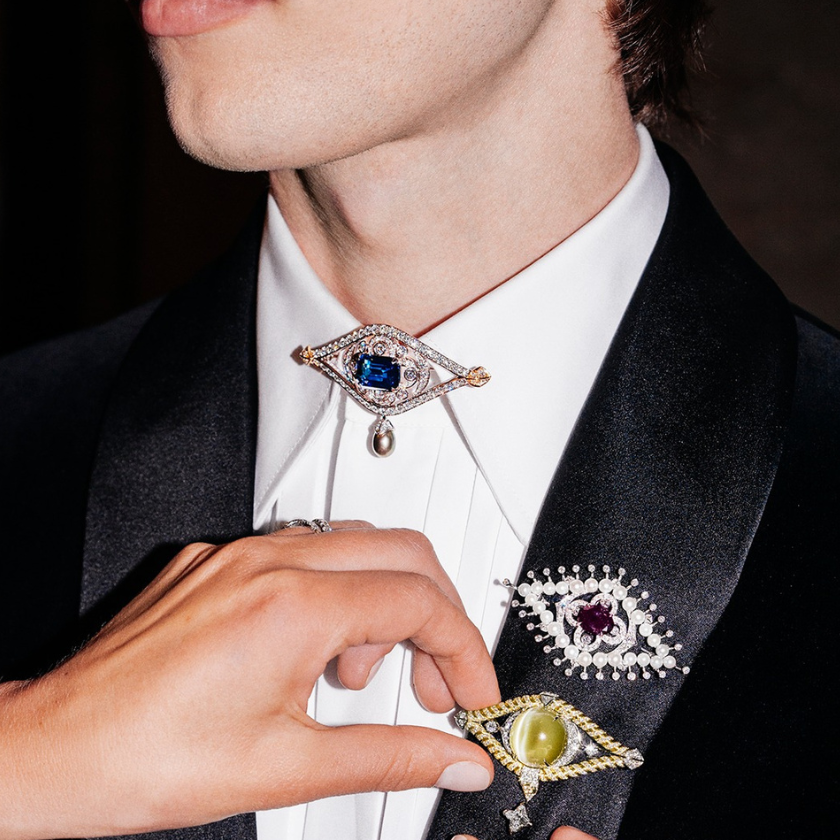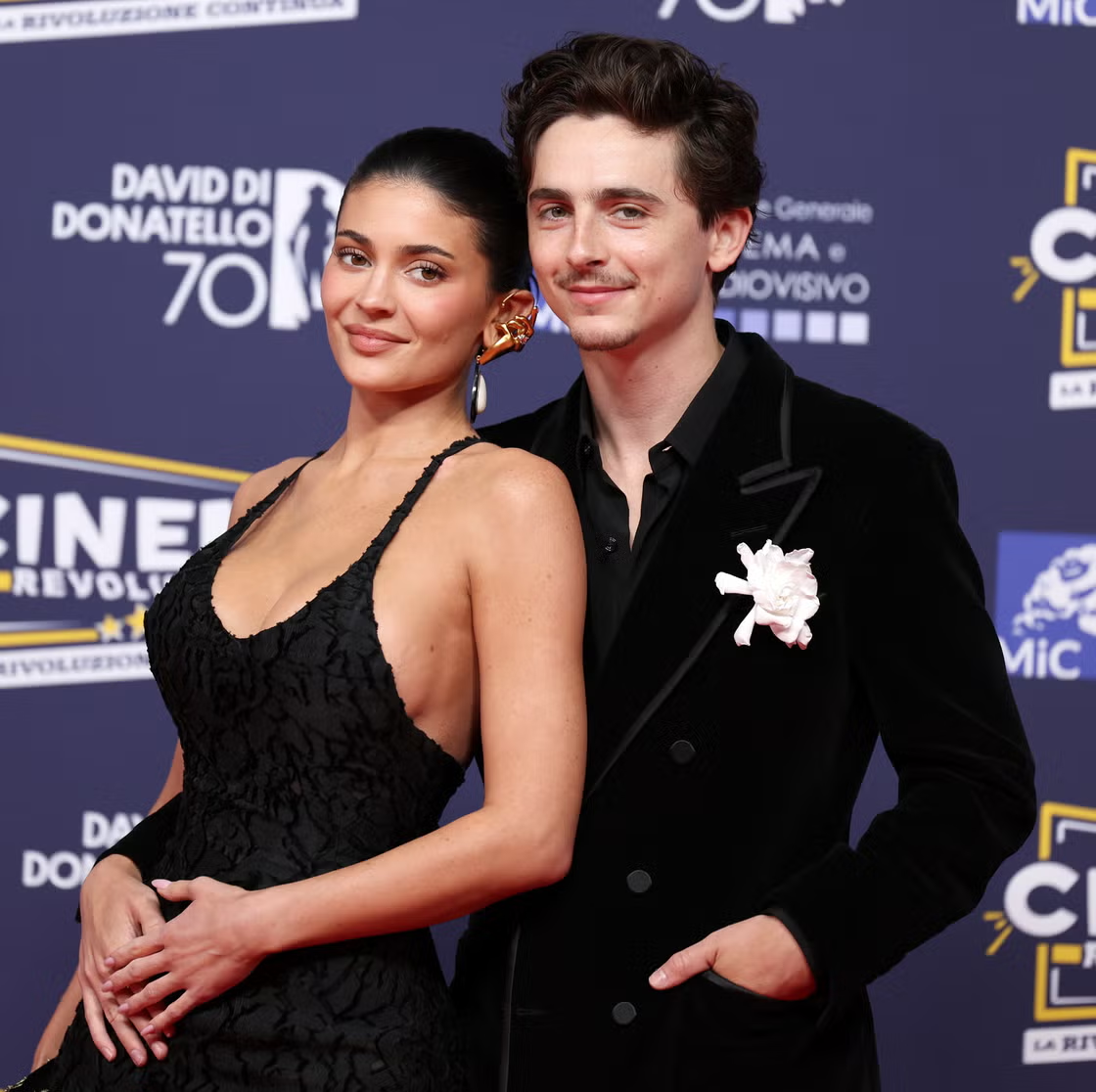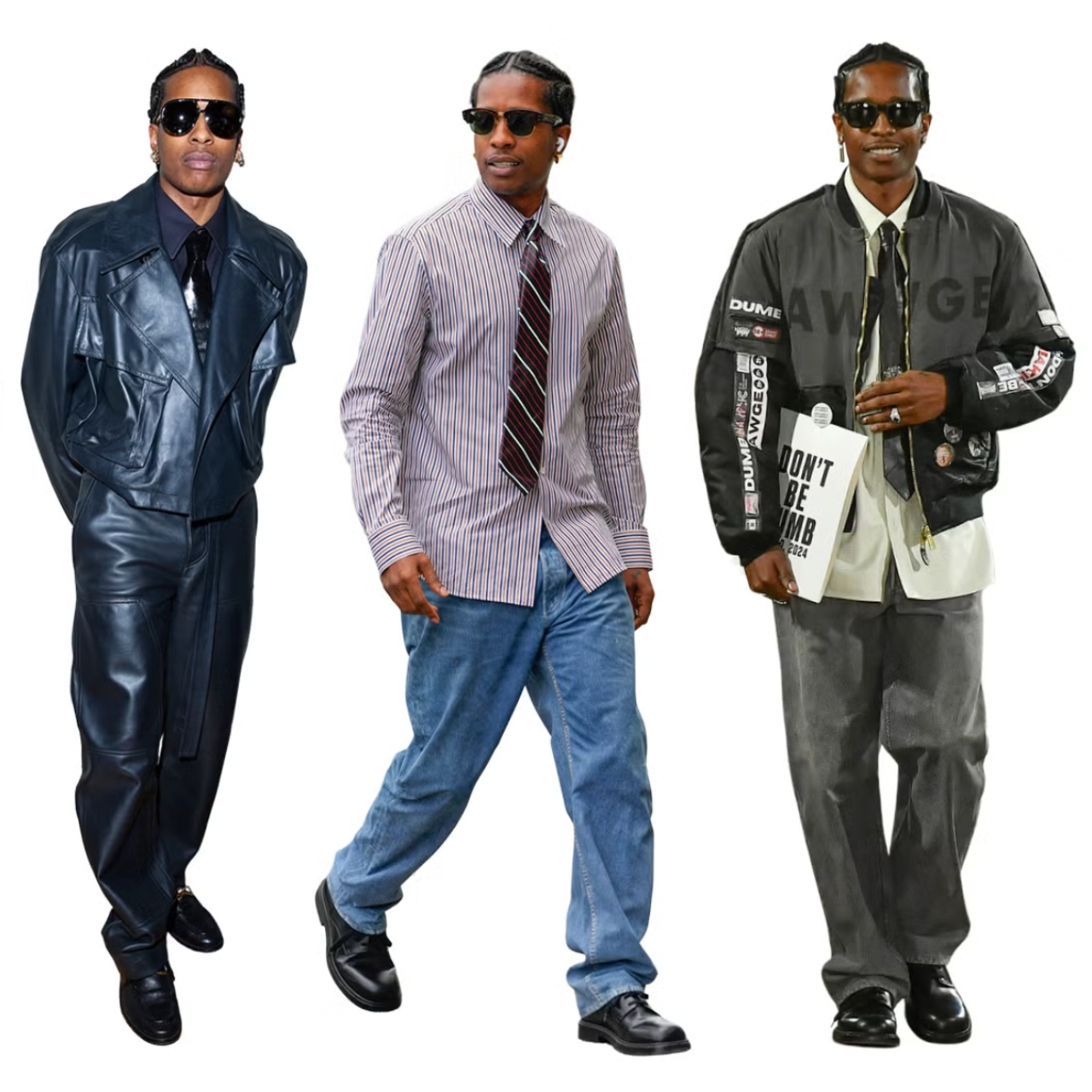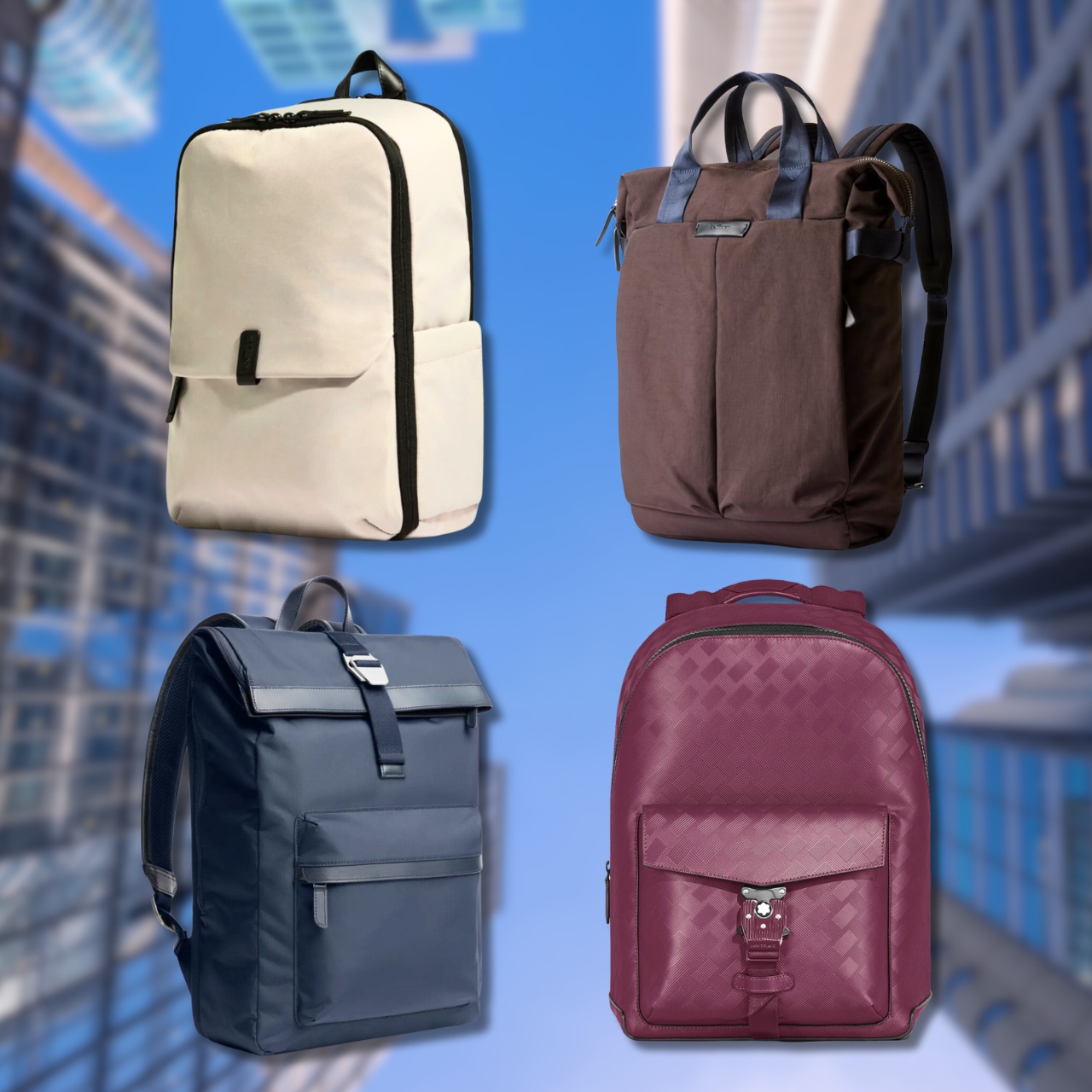Hang it on your wall, wear it to the beach: inside Jordan Gogos & Akira Isogawa's new capsule collection
Art doesn't come much more wearable than this. We chat to designer Jordan Gogos about his second body of work with Akira, which was unveiled in Melbourne this week.
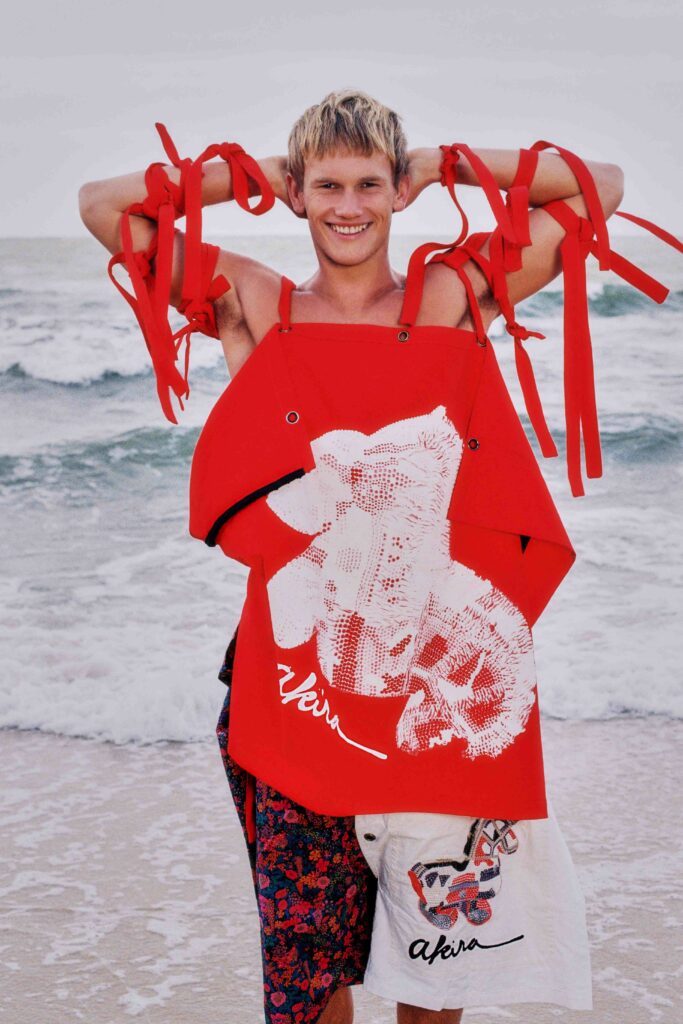
OF ALL THE ADJECTIVES I could use to describe the aesthetic of Jordan Gogos’ eponymous brand, ‘tame’ would not be one of them. If you’re familiar with the young designer’s larger-than-life runway shows, which have generated the most buzz at recent Australian Fashion Weeks, you’ll know he doesn’t do things by halves. Yet when he first approached the Akira Isogawa about working together, it was on the premise that they would do “a very tame collaboration, around five pieces”.
Of course, that was never going to happen. After meeting up, the pair decided to work on a runway show together, which was such a good experience, they concluded their partnership couldn’t just be a one-off. But this time, they wanted to do something slightly different. Something that wasn’t restricted to the realm of fashion. And over time, that something became collectible capsule collection.
“There are so many ‘clothes’ in the world, and I don’t think either of us felt this capsule should fit among that, but rather be positioned amongst collectibles,” Gogos explains to me. “We wanted to make a DIY collection, almost like we give cut pattern pieces to the wearer and then let them make it—a little bit like IKEA but without direct instructions. We wanted to involve the wearer in the making process.”

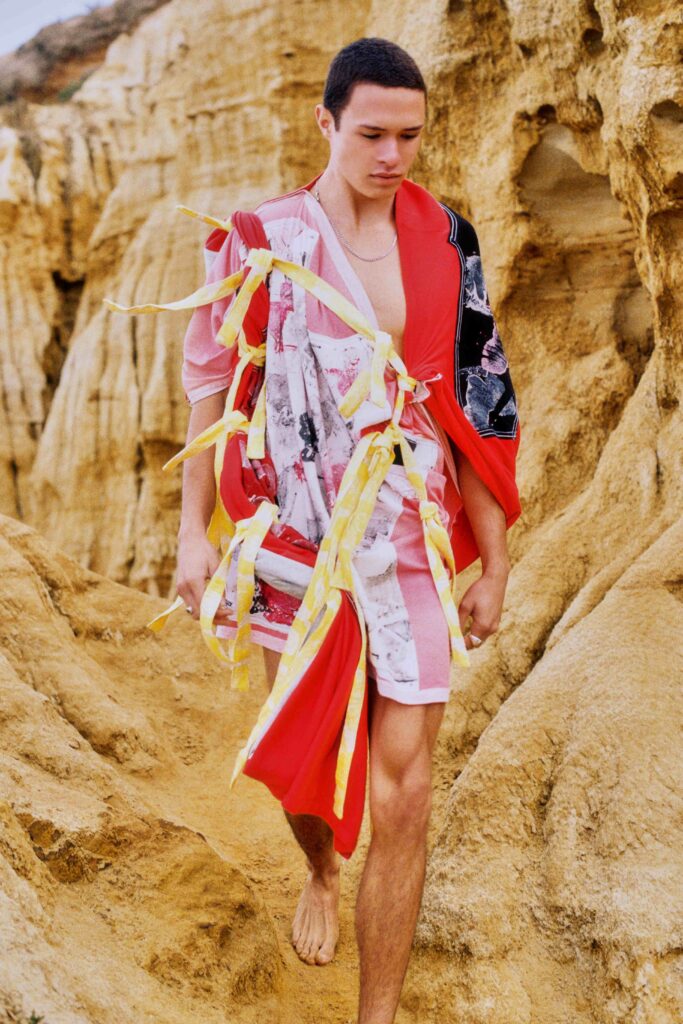
The capsule consists of only 10 pieces, and each is crafted from deadstock fabric sourced directly from Akira’s own archive. If you’re not familiar with the Japanese-Australian designer’s legacy, it’s one of the most decorated in Australian fashion history.
“His ability to manipulate fabric is infinite, ideas boundless and impact unprecedented,” offers Gogos. “In a very white Australia, Akira rose to the top of the fashion world by remixing Japanese art [and] it was at the forefront mainstream Australian media. I mean, all of a sudden, wealthy people were picking up Kimono fabrics as opposed to beige linens.” During the 1990s and early aughts, this was pretty radical. “His clothes are passed down generationally. They are and continue to be family heirlooms and treasured possessions,” adds Gogos.
It’s true—an Akira dress is not the kind of dress you get rid of after a year or so. It is a purchase you can truthfully justify with an ‘I’ll have this forever,’ and even if you’re not wearing it every day, you’ll keep it in your wardrobe for when you’re ready to slip into it again, or share with a loved one. And that’s exactly the mentality these two designers have approached their first capsule collection with.
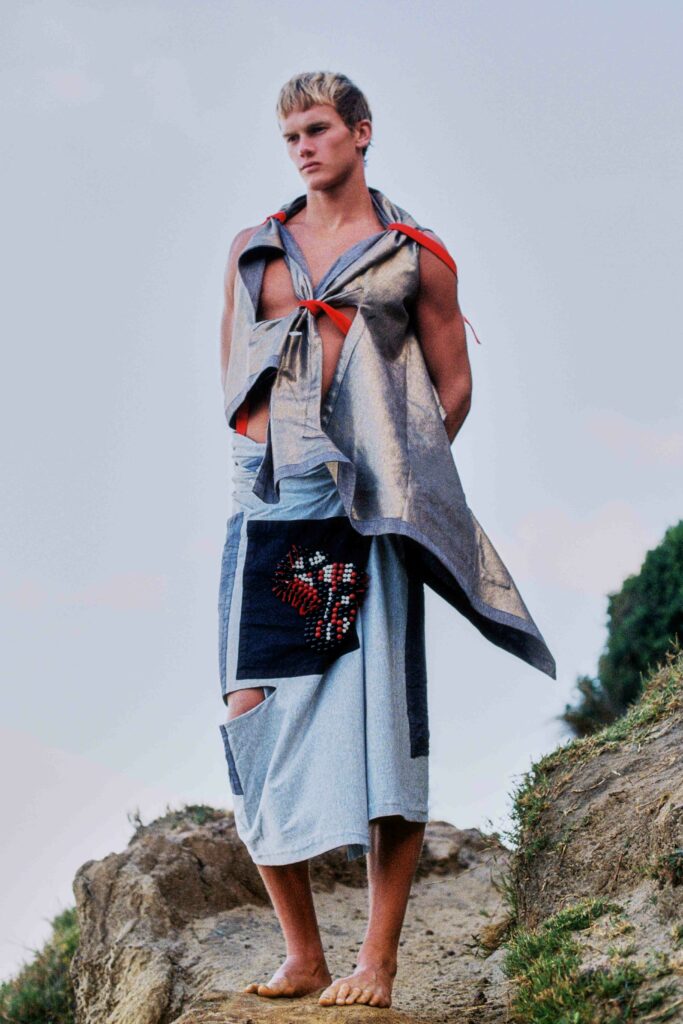
Each piece is, ostensibly, a square of Akira’s archival fabric (“It’s barely deadstock. [His archive] would actually do very well being its own fabric store,” remarks Gogos), but they are designed to be worn in multiple different ways. “One of the styles has a drawstring around the edge, and [it’s] cut through the middle with a draw string,” explains Gogos. “We have styled it as a dress, skirt, bag, and poncho. It’s infinite.” He adds that each piece has something special about it, like beading, embroidery or a one-off screen print, so that whoever purchases it doesn’t just have something stunning to wear to their next event—they have a piece of the Gogos x Akira DNA. Perhaps they don’t even intend to wear it at all; being a square, these one-of-a-kind pieces double as artworks, and you can rest assured that zeitgeisty art collectors will be snapping them up for precisely this purpose.
“I always think about pieces being hidden in a cupboard when not being worn. As consumers, we definitely flux between loving fashion and being totally anti-fashion and I think making something a little bit in-between felt right,” Gogos gesticulates.
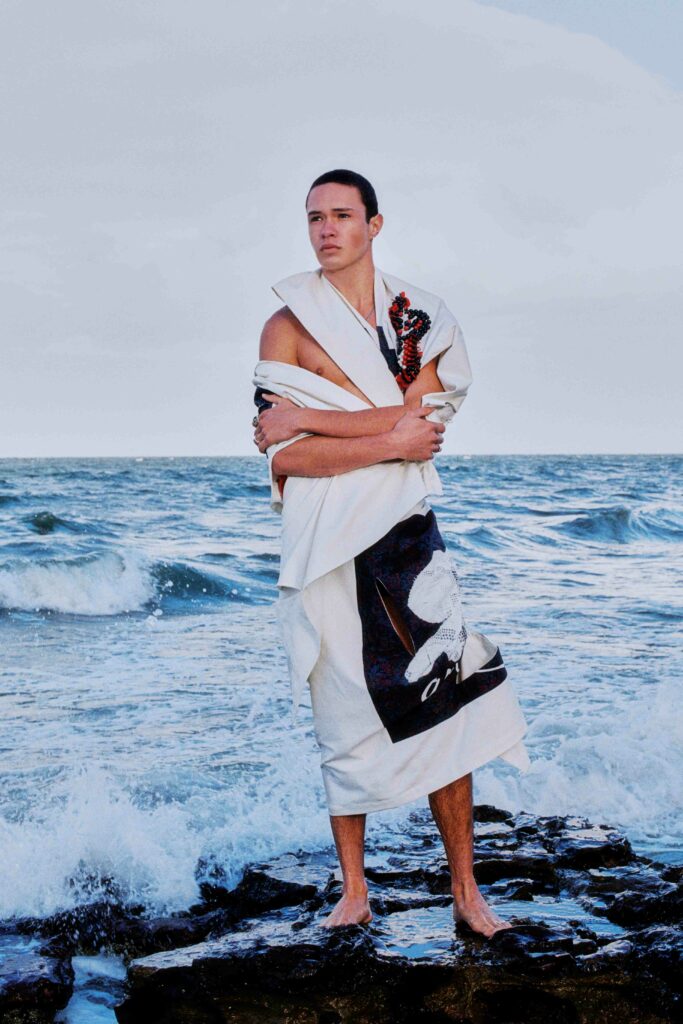
It makes sense that Akira and Gogos have found a sense of kinship. Akira’s ability to bring Eastern influences into what was (and still is) a very Western fashion climate was trailblazing, meanwhile, Gogos’ embrace of community, his spirit of inclusivity and his willingness to prod and challenge the status quo make him one of the most disruptive young designers of our time.
This photoshoot is a great example of his expansive approach to fashion and imagery. “I like to style guys in my work because it completely deconstructs and reworks what ‘masculine’ dressing is. The second you remove the idea that the piece of fabric around you is a skirt, and you think of it like wrapping a towel around your waist, the boundary is already broken,” he says.
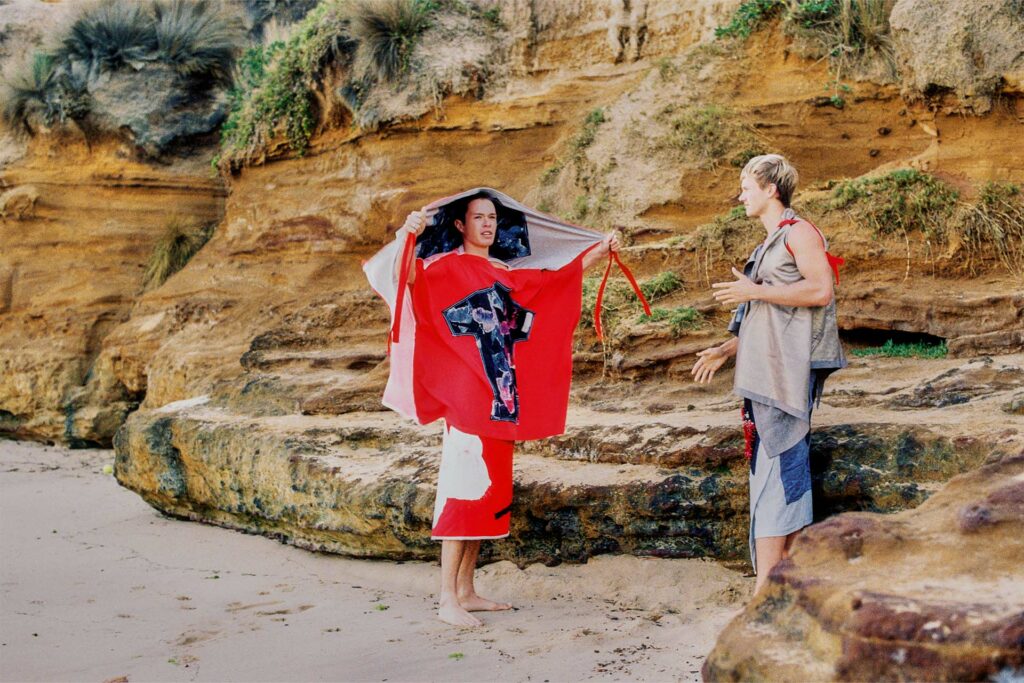
The capsule will be unveiled at the PayPal Melbourne Fashion Festival this evening, with an exciting announcement regarding where it can be purchased to follow soon after. When I ask Gogos how he recommends wearing the multi-purpose pieces, his answer, while somewhat unsatisfying, taps into the intent of the collection.
“The second you recommend anything, it kind of sets up your brain to think ‘that’s what it must be’. Put your arms in the holes, place it over your head, tie it around your waist and see what you come up with… but I look forward to wearing pieces over shirts, jeans or swimmers, to give basics new life.”
Models: Blaze Lowry and Max Tate at Priscillas Model Management.
Related:
See inside ‘APT CCC’, a new concept space by Chinatown Country Club
Heavy metal: the coolest Australian jewellery brands for men












